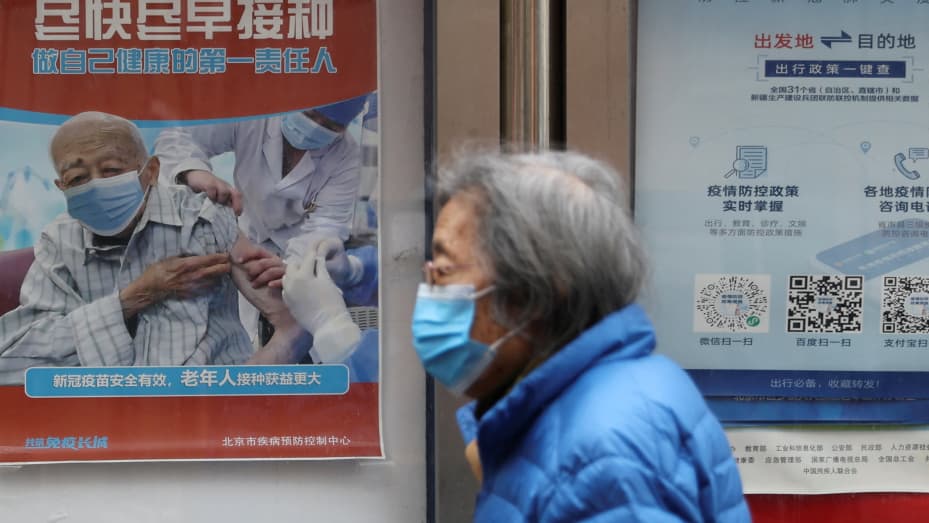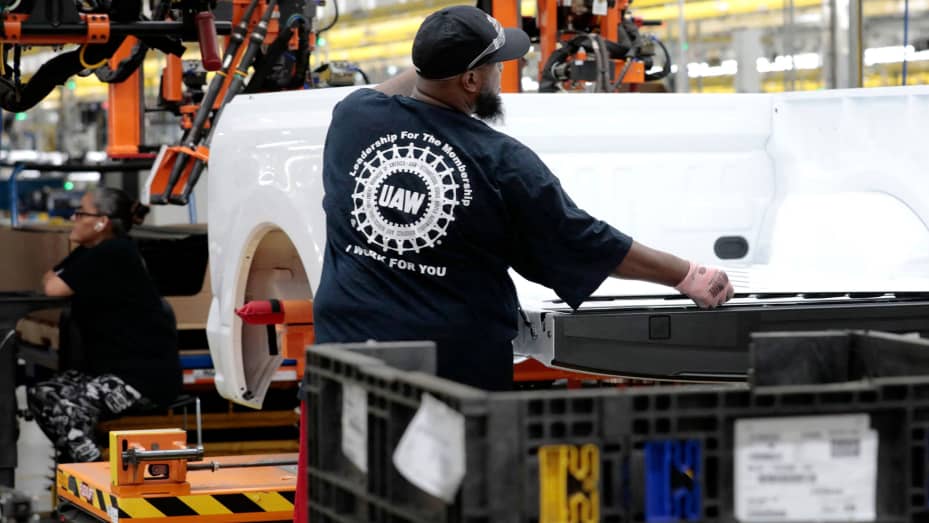


Here are the most important news items that investors need to start their trading day:
The Federal Reserve’s policy makers don’t hold their December meeting until next week, but investors are already looking ahead to the most eagerly awaited Fed decision in months. The central bank has steadily increased its benchmark rate in increments of three-quarters of a point since June but is now expected to start easing off that aggressive pace. Yet as recent economic data has shown – inflation is still high, albeit a bit cooler, and the job market is still rocking – the Fed hasn’t cooled the economy as much as it would have liked by now. “Despite some promising developments, we have a long way to go in restoring price stability,” Fed Chairman Jerome Powell said last week. Read live market updates here.

Chinese President Xi Jinping’s “zero Covid” policy has disrupted a key part of the global economy for a while now, often resulting in lockdowns that crimp supply chains and keep consumers sequestered for long stretches. There are signs it’s beginning to ease, however, after people across China took to the streets in recent weeks to protest the policy in a rare showing of unified resistance. Beijing and Shenzhen said over the weekend they would relax a rule that required negative Covid tests before travel. That, in turn, boosted Chinese stocks. Morgan Stanley analysts also upgraded its rating for Chinese equities, saying a “path towards reopening is finally set, likely bumpy but with no turning back.”

The news out of China also gave a little push to crude prices, which had been lagging in part because of concerns of lower demand from the nation of 1.4 billion. WTI crude futures traded above $80 early Monday morning, while Brent crude eclipsed $86. Oil prices also got some support from OPEC+, which said it would stick with its plan to cut production, even as the G-7 slapped a $60-a-barrel price cap on Russian oil. “It is the right decision to hold steady, especially if you don’t know how much, if at all, Russian production is going to fall after today,” Amrita Sen, head of research at energy consultancy Energy Aspects, told CNBC.

Tesla’s share of the U.S. electric vehicle market is shrinking, but it still dominates as traditional auto makers race to catch up. That makes the battle for second place the more compelling competition. Last week, Fordreported EV sales numbers that put it at no. 2, knocking out Hyundai (but only if you don’t count sales of Hyundai’s Nexo hydrogen fuel cell vehicle). And Hyundai is also at a disadvantage since its vehicles don’t qualify for U.S. EV tax credits anymore under President Joe Biden’s new Inflation Reduction Act. Ford says it now has 7.4% of the EV market in the U.S., which is up from 5.7% in November of last year. Tesla controls about 65% of the market, however, and Ford’s crosstown rival, General Motors, has set the ambitious goal to be no. 1 by the middle of the decade.

Two Russian bombers were the apparent targets of an attack on an air base near Ryazan, southeast of Moscow. Reports indicated drone attacks were behind the explosions. The base has reportedly served as the launch site for airstrikes on Ukraine over the past few weeks. While Ukraine has made advances on the battlefield, Russian missiles have crippled much of the country’s infrastructure, plunging millions into darkness as bitterly cold weather settles into the region. Read live war updates here.
– CNBC’s Sarah Min, Jihye Lee, Lee Ying Shan, Michael Wayland and Holly Ellyatt contributed to this report.
— Follow broader market action like a pro on CNBC Pro.
